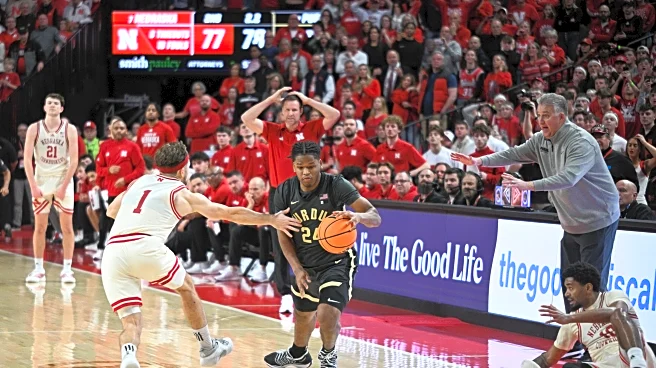What's Happening?
Anthony Hopkins, the acclaimed actor known for his role in 'The Silence of the Lambs,' has opened up about his estranged relationship with his daughter, Abigail, in a recent interview with The New York Times. The discussion comes ahead of the release
of his memoir, 'We Did OK, Kid.' Hopkins revealed that his wife, Stella, had extended an invitation to Abigail to reconnect, which went unanswered. The actor expressed a sense of acceptance over the situation, stating that he wishes his daughter well but refuses to dwell on resentment. Hopkins and Abigail, who is his daughter with his first wife Petronella Barker, have had a sporadic relationship over the years. They reconnected in the 1990s, with Abigail appearing in some of his films, but have since lost touch.
Why It's Important?
The estrangement between Anthony Hopkins and his daughter highlights the complexities of familial relationships, especially in the public eye. Hopkins' candidness about his personal life offers a rare glimpse into the challenges faced by public figures in maintaining private relationships. This revelation may resonate with many who experience similar familial estrangements, emphasizing the universal nature of such issues. Additionally, the release of Hopkins' memoir could provide further insights into his personal and professional life, potentially impacting his public image and legacy. For Abigail, who has pursued a career in music and film, the public discussion of her relationship with her father may influence her personal narrative and professional endeavors.
What's Next?
With the release of 'We Did OK, Kid' on November 4, there may be increased public interest in Anthony Hopkins' personal life and his relationship with his daughter. The memoir could spark further discussions about family dynamics and reconciliation. It remains to be seen whether Abigail will respond publicly to her father's comments or the memoir itself. The situation may also prompt discussions about the impact of fame on personal relationships, potentially influencing how other public figures address similar issues.

















